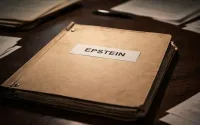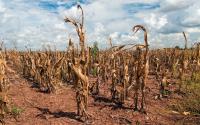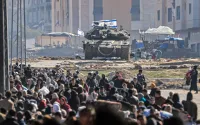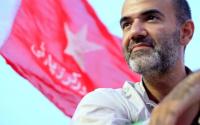 |
While the major European powers are widely expected to recognise Kosovo's independence from Serbia, several other countries have strong reservations.
US President George W Bush said "the Kosovars are now independent", but that recognition of Kosovo would be guided by a UN-supported plan.
Thousands of Kosovo Serbs protested on Monday against the declaration.
In the divided town of Mitrovica some chanted "This is Serbia" while others carried banners appealing for help from Russia, which has opposed Kosovo's independence.
On Sunday, Kosovo's majority ethnic Albanians had celebrated with fireworks late into the night.
'Blueprint'
Mr Bush, speaking in Tanzania during an Africa tour said the UN plan drawn up by former Finnish President Martti Ahtisaari "is our blueprint forward".
Sunday's declaration said Kosovo would be built in accordance with the plan, which outlines several limits on independence including an international presence and provision for the protection of the Serb minority.
 Kosovo Serbs turned out to protest on Monday |
"We'll watch to see how the events unfold today. The Kosovars are now independent," Mr Bush said in an interview with NBC News.
In Brussels the chairman of the EU meeting, Slovenian Foreign Minister Dimitrij Rupel, said he understood "many of the member states will recognise" Kosovo.
His British and French colleagues insisted Kosovo was a unique case and called for EU unity on the issue, the BBC's Oana Lungescu reports.
UK Foreign Secretary David Miliband described Kosovo as a "unique situation which deserves a unique response".
"I think it's very important that we recognise that all of the countries of the Western Balkans are European countries and therefore it's critical that Europe shows real leadership in how it ensures that peace and stability are the order of the day," he said.
But Spanish Foreign Minister Miguel Angel Moratinos said Spain would not recognise Sunday's declaration because it "does not respect international law".
Cyprus, Greece, Romania, Bulgaria and Slovakia have also expressed anxiety about the signal that recognition might send to separatists.
German Chancellor Angela Merkel said her country, which has been predicted to back Kosovo independence, would not declare its position on Monday.
"The aim is to have a platform of unity within the EU, on which each member state can act," she said.
The EU has already agreed to send about 2,000 police, justice and civil administration officials to oversee Kosovo and help develop the province's institutions.
Russian opposition
A split emerged at the UN Security Council on Sunday when Russia said Kosovo's declaration should be null and void.
KOSOVO PROFILE Population about two million Majority ethnic Albanian; 10% Serb Under UN control since Nato drove out Serb forces in 1999 2,000-strong EU staff to take over from UN after independence Nato to stay to provide security |
Russia's UN ambassador said there was no basis for changing a 1999 security council resolution on Kosovo's status - which hands Kosovo to the UN.
But seven Western states including the United States, the UK, Belgium and France issued a statement saying the situation had moved on.
Russia has indicated that Western recognition of an independent Kosovo could have implications for the breakaway regions of Abkhazia and South Ossetia in Georgia.
China expressed its "deep concern" about Kosovo's declaration, urging it to reopen talks with Serbia.
UN Secretary General Ban Ki-moon called on all sides to keep to their commitments and refrain from violence.
A second emergency session is due to be held later on Monday.
Violence
There has been some unrest following the independence declaration. A hand grenade thrown at a UN court building in the flashpoint town of Mitrovica caused slight damage and a UN car was reported to have been destroyed in the nearby village of Zubin Potok.
In Belgrade, clashes between gangs of youths and riot police went on into the early hours of Monday morning.
Demonstrators broke windows at the US embassy and also attacked the Serbian government building and the embassy of Slovenia which currently holds the EU presidency.
Meanwhile, Serbian authorities issued criminal charges against Kosovo leaders for "organising the proclamation of a false state on Serbian territory."
The Serbian government has called for a mass protest rally against the Kosovo declaration later in the week.







